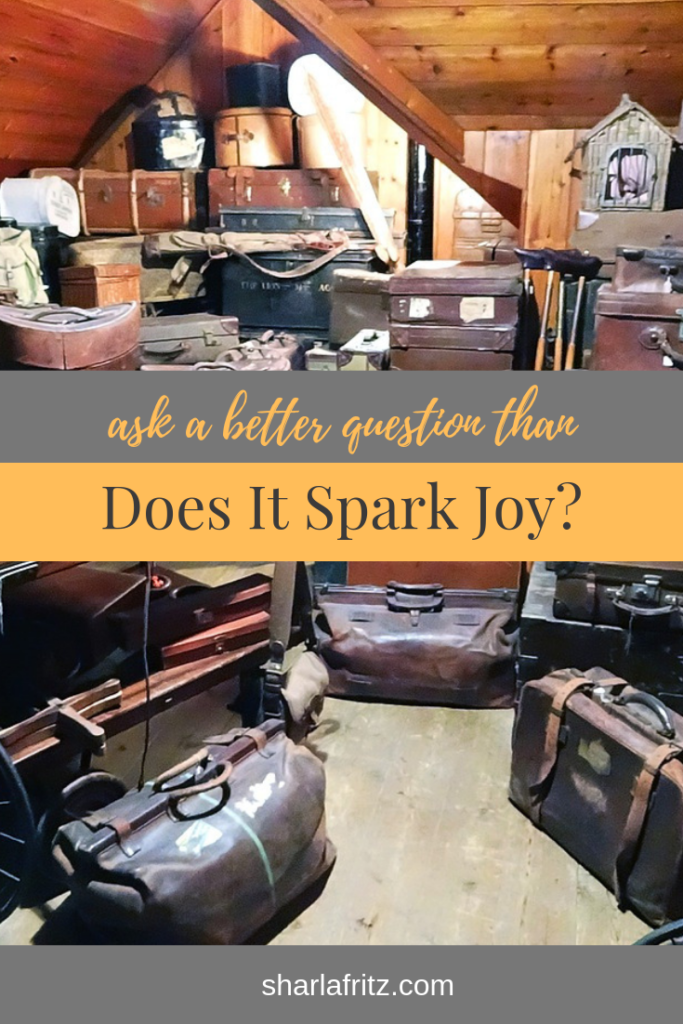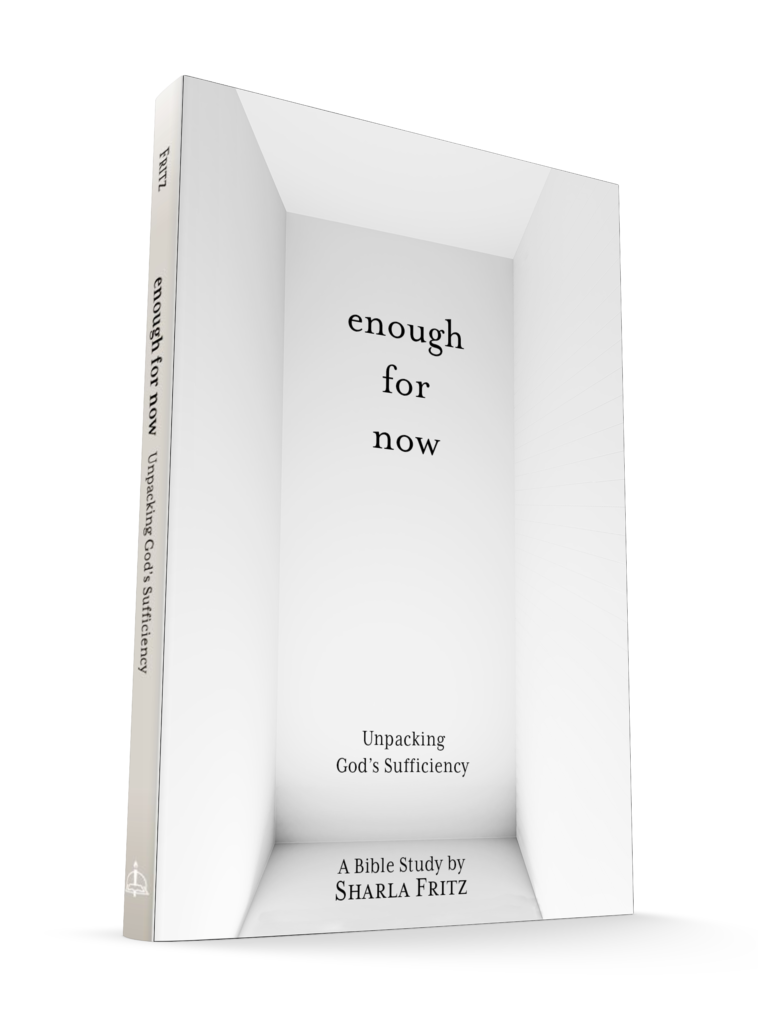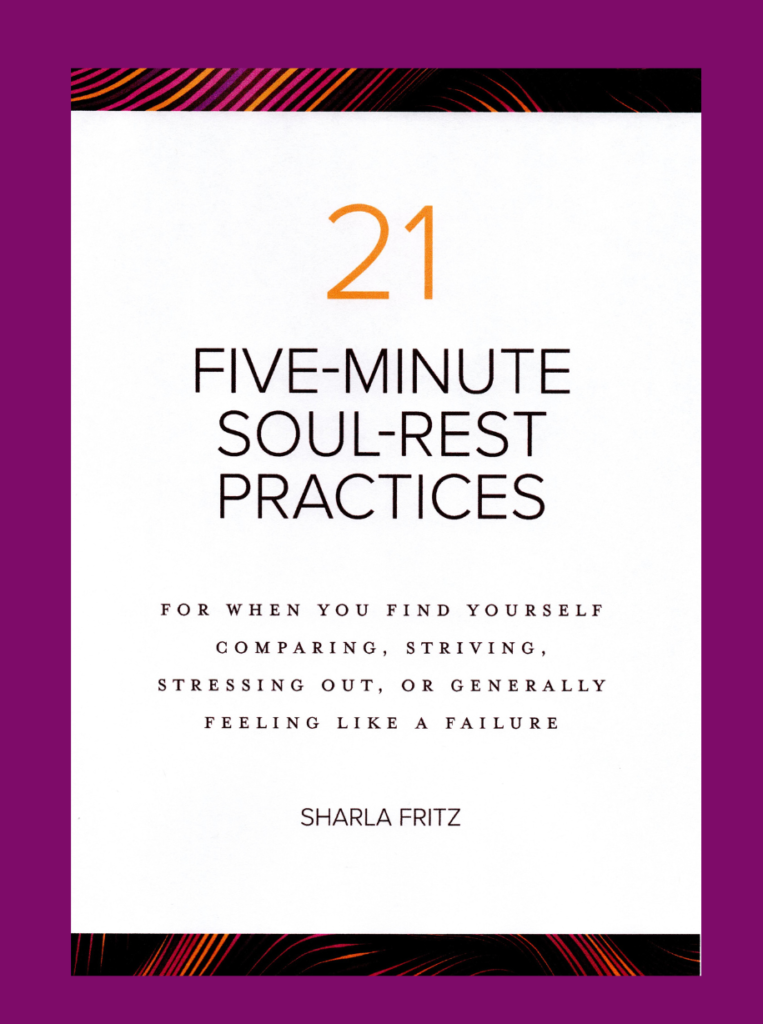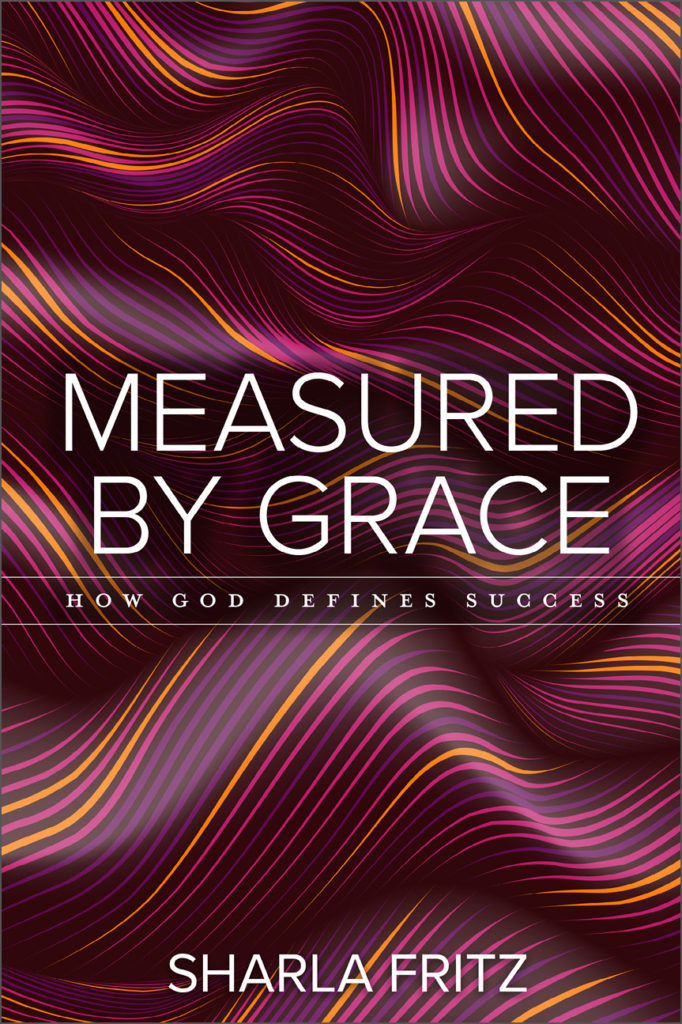
This post is an excerpt from my new book Enough for Now: Unpacking God’s Sufficiency. Learn better question than “Does it spark joy?”
“Oh, say can you see…” The toy in the backseat sang out the national anthem for the 101st time. We felt we would go crazy if we heard it 102 times.
It was Christmas time—that joyous season of consumerism. Three days before the non-stop recital of “The Star-Spangled Banner” my husband and I had packed up our four-year-old daughter and almost two-year-old son in our little fire-engine red Nissan Sentra to drive from our home in Illinois to see grandparents in Wisconsin.
Grandparents love to spoil their grandchildren and how could I limit their joy? But that year the abundance of gifts became overwhelming. It was the year my younger sister worked at a toy factory. She–and my parents–had the opportunity to buy quality wooden toys at factory discounts. Grandma and Grandpa bought my children wooden blocks, dominoes, train sets, and puzzles. One puzzle contained all fifty of the U.S. states and played the national anthem when the puzzle was completed. “How cute,” we thought when our daughter opened the gift.
But when the time came to go home, not all the toys would fit in the small Sentra trunk. So, we stacked the extras in the back seat between the car seats with the United States puzzle on the top of the pile. However, we didn’t realize the chip that played “The Star-Spangled Banner” was light sensitive and the puzzle piece that covered the chip had moved off in the shuffle of packing. Every time a semi passed us, its lights cued up the anthem. I couldn’t reach the puzzle from the front seat and the kids had fallen asleep so we didn’t want to stop. As much as we love our national anthem, we quickly grew tired of it. If a convoy of trucks zoomed by, the song would start over with each pair of headlights. “Oh say can you…Oh say can…Oh say…” It was the purgatory of patriotism.
While I vividly remember that United States puzzle, I also recall the sheer number of toys our children received that Christmas. When we finally got home, it took us days to find places to store them because, truthfully, the toy box was already full. We appreciated my parents’ generosity and our kids loved all the new playthings, but it became the beginning of too much stuff.
Many of us have an addiction to stuff. We want to buy it. We like to own it. We need to store it. Why do we feel this need for things? Part of this desire certainly stems from living in a materialistic society. Advertisements tell us that we deserve a better watch. That our loved ones will only appreciate us if they receive a diamond necklace. That our significance is entirely dependent on the type of car we drive.
And yet, the more stuff we have, the more it may actually weigh down our souls and our minds. Psychologists have found that unchecked clutter in our homes can lead to depression and anxiety. UCLA researchers discovered stress hormones spiked in the brains of mothers when they dealt with their belongings. Those stress chemicals (which often result from disorganization) eat up the beneficial chemicals in our brains that stabilize our emotions. Every single thing we own can add a heaviness to our tired soul.

Instead of “Does It Spark Joy?” Ask This Question
Most of us realize this burden of excess on our minds and souls. And yet we have trouble getting rid of our stuff. What to keep? What to discard? A very popular book titled The Life-Changing Magic of Tidying Up (not a book I recommend, by the way) suggests holding up each item you own and asking yourself, “Does it spark joy?” This can be a useful question. Yes, my favorite gray cardigan sparks joy. It fits me well. It keeps me warm. It coordinates with many of my other clothes. On the other hand, the red satin top I bought to go with one of my blazers does not spark joy. It’s beautiful but didn’t actually work with the intended blazer and doesn’t look good with anything else I own. I should get rid of it, but I paid a lot of money for it and I feel I should wear it at least once. That item only sparks regret.
“Does it spark joy?” can be a practical assessment, but I would like to suggest an even better question would be, “How does this item affect my soul—does it draw me closer to the God of sufficiency or does it pull me away?” This question will require some careful thought. For instance, a classic car could be seen as something that pulls the owner away from God. It requires large sums of money and weekends filled with maintenance tasks. Working on the car could isolate the owner from his family and keep him from attending Sunday services. On the other hand, a pair of hiking boots could be seen as an item which draws the owner closer to God. When she wears the boots, she is experiencing nature and witnessing God’s glorious creation. Her heart fills with praise for the Lord of the universe.
But the opposite could be true as well. Perhaps the classic car owner uses the hours spent maintaining his vehicle as quality time with his son or daughter in their shared interest. Maybe he takes this prized possession to classic car shows designed to spark conversations about Jesus to the unchurched. And the owner of the hiking boots? Maybe she’s the one missing church every weekend to visit the great outdoors.
When you begin decluttering or before you purchase something new, determine how each item draws you closer to God or pulls you further away. Does the item weigh down your soul as one more thing to dust and clean? Or does it fill your heart with gratitude each time you see it? Does it pull you away from time with your heavenly Father? Or does it make life easier, giving you more time with the Savior? Is it a useful tool, saving you time or money that can be used for the Kingdom?
In Christ We Find Enough
In Luke 12:29-31, Jesus urges all of us:
And do not seek what you are to eat and what you are to drink, nor be worried. For all the nations of the world seek after these things, and your Father knows that you need them. Instead, seek his kingdom, and these things will be added to you.
I read this and hear Jesus telling me:
You don’t have to act like the rest of the world, chasing after things to fill your soul. Rest in the fact that you have a Heavenly Father who sees you and knows exactly what you need. Trust Him in this. Don’t set your heart on material possessions, instead, seek out God’s kingdom—a kingdom where the size of your house or the price of your car has no relevance. I want you to be rich, but rich in things that matter: peace, joy, love. You can’t find these things in a grain elevator or a walk-in closet. They are only found in Me.
In Me you will find enough.
Next step: Next time you are decluttering a closet or considering a new purchase, ask yourself, “Does this item draw me closer to the God of sufficiency or does it pull me away?”
This post is an excerpt from my new book Enough for Now: Unpacking God’s Sufficiency. Reprinted with permission from Concordia Publishing House.

If you would like to learn more about finding enough, check out my brand new book Enough for Now: Unpacking God’s Sufficiency!
A study of the parable of the rich fool, it will help you discover:
- enough money
- enough stuff
- enough food
- enough relationships
- enough time
- enough of me
You can find out more about it here. And order it here and here!



Ah Sharla, you nail it. Taking a look at how God will use that item to make him know is a great question to ponder as I make a purchase. May God continue to guide and direct you as you share insights He has given you.
Thanks Teresa! That question helps me make decisions based not on the world’s values, but God’s values!